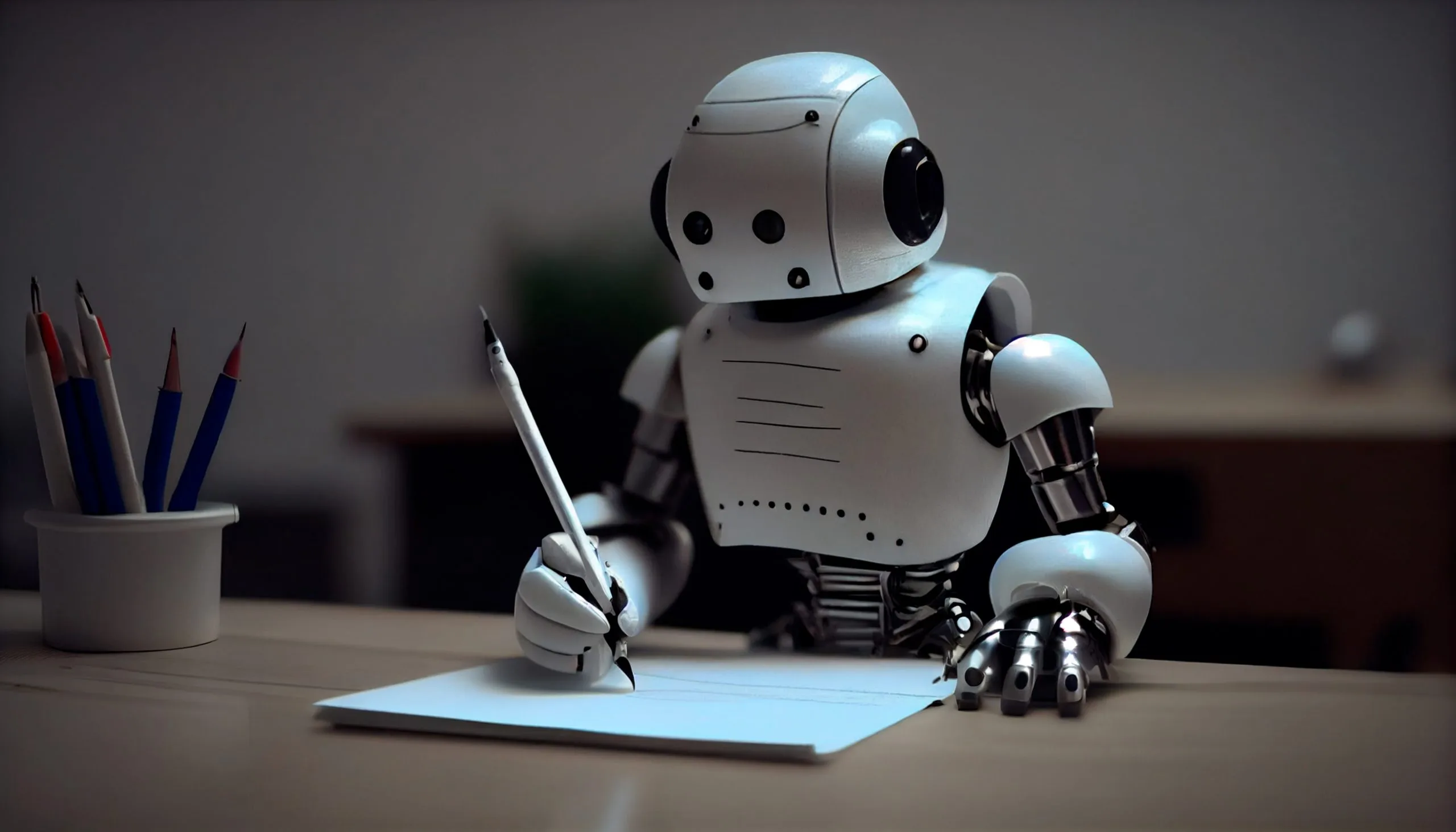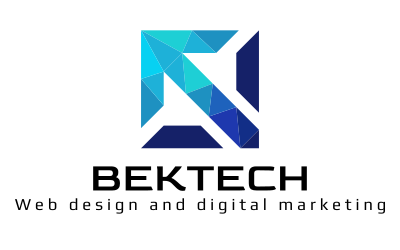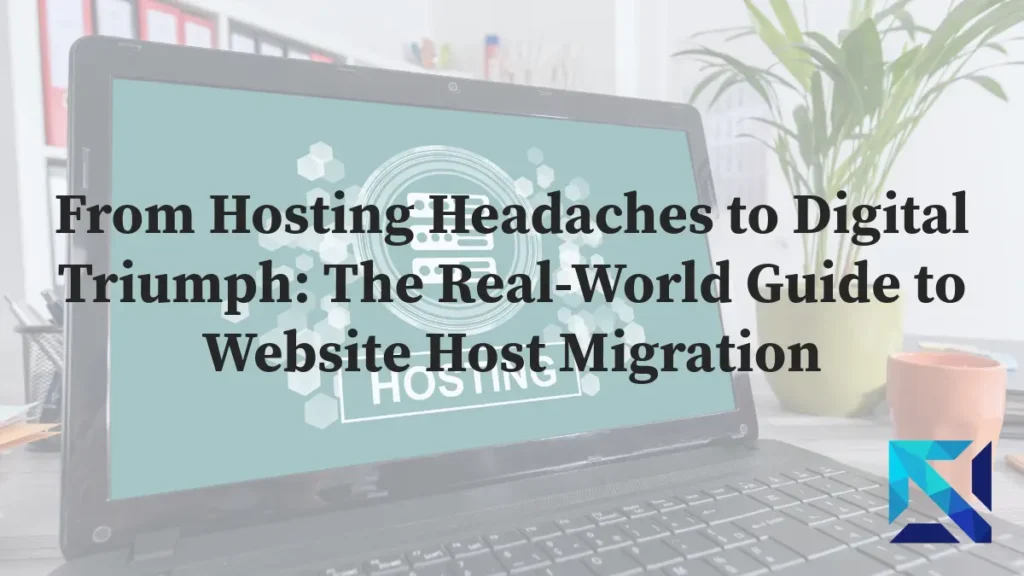Today, content is really important online. Businesses want to do better on search engines and get more visibility. They use SEO to improve their rankings on search engine results pages.
One of the latest trends in content creation is the use of artificial intelligence (AI) to generate content. But is AI generated content better for SEO than human-generated content? In this article, we’ll explore the impact of AI generated content on SEO and compare it to human-generated content.
What is AI-generated content?
AI generated content is made by computers that use advanced AI algorithms created by humans. The algorithms analyze lots of data to learn patterns and trends, then create content that looks like human writing.
AI can quickly create different types of content like articles, blogs, and product descriptions. It is fast, reliable, and can include specific keywords. Businesses can use AI to make their content creation easier and better. It helps improve digital marketing efforts.
AI content generation is a rapidly evolving field. As technology advances, we can expect AI to become more sophisticated in its ability to create original, engaging, and factually accurate content.
What is Generative AI content?
Generative AI generated content refers to digital media, including text, images, audio, and video, that is created or synthesized by artificial intelligence algorithms. These algorithms are designed to learn from enormous data sets, recognizing patterns, styles, and data structures, using this learned information to create new, unique content that reflects the learned material.
This technology finds application across various fields, from automated writing and artistic image creation to music composition and beyond, enabling innovative content generation that can mimic human-like creativity.
The Rise of AI in Content Creation
AI has been making waves in various industries, and content creation is no exception. With advancements in natural language processing (NLP) and machine learning, AI is now capable of generating human-like content. This has led to the rise of AI content creation tools and platforms, which promise to save time and resources for businesses.
AI generated content is created by algorithms that analyze data and use it to generate text. These algorithms can produce a large volume of content in a short amount of time, making it an attractive option for businesses looking to scale their content creation efforts.
The SEO Impact of AI-Generated Content

Speed and Quantity
One of the main advantages of AI generated content is its speed and quantity. With AI, businesses can produce a large volume of content in a short amount of time. This can be beneficial for SEO, as search engines favor websites that regularly publish fresh and relevant content. With AI, businesses can quickly create a large number of articles, blog posts, and product descriptions, which can help improve their search engine rankings.
Consistency and Accuracy
AI-generated content is also known for its consistency and accuracy. Unlike human writers, AI algorithms do not make mistakes or deviate from the desired tone or style. This can be beneficial for businesses that want to maintain a consistent brand voice across all their content. Additionally, AI-generated content is less likely to contain spelling or grammatical errors, which can negatively impact SEO.
Keyword Optimization
Another advantage of AI generated content is its ability to optimize for keywords. AI algorithms can analyze data and identify the most relevant and high-performing keywords for a particular topic. This can help businesses create content that is more likely to rank for their target keywords, improving their SEO efforts.
The Role of Human Writers in SEO
While AI generated content has its advantages, human writers still play a crucial role in SEO. Hence, the reason.
Quality and Creativity

One of the main drawbacks of AI generated content is its lack of creativity and originality. While AI algorithms can produce a large volume of content, it may lack the human touch that makes content engaging and interesting to readers. Human writers can inject creativity and personality into their writing, making it more appealing to readers and improving the overall quality of the content.
Understanding of Context and Nuance
AI algorithms may struggle with understanding context and nuance, which can result in irrelevant or inaccurate content. Human writers, on the other hand, have the ability to understand the context of a topic and write content that is relevant and valuable to readers. This is especially important for businesses that want to establish themselves as thought leaders in their industry.
Adaptability and Flexibility
Another advantage of human writers is their adaptability and flexibility. While AI algorithms may be able to generate content on a specific topic, they may struggle with writing about a wide range of subjects. Human writers, on the other hand, can adapt to different topics and writing styles, making them a more versatile option for businesses.
Finding the Right Balance
by Vitalii Khodzinskyi (https://unsplash.com/@khodzinskyi)
So, which is better for SEO: AI-generated content or human-generated content? Yes, it is both. While AI-generated content has its advantages, human writers still play a crucial role in creating high-quality, engaging content. The key is finding the right balance between the two.
Businesses can use AI to generate a large volume of content quickly, but they should also have human writers review and edit the content before publishing it. This ensures that the content is accurate, relevant, and engaging for readers. Additionally, businesses can use AI to identify high-performing keywords, but human writers can then incorporate them into the content in a natural and organic way.
Which One is Better: AI vs Human?
When considering AI versus human capabilities, the answer is not straightforward and largely depends on the context and specific tasks at hand. AI excels in processing vast amounts of data at incredible speeds, performing repetitive tasks with unwavering consistency, and executing well-defined, rule-based jobs with high accuracy. This makes AI particularly effective in areas like data analysis, pattern recognition, and automating routine tasks.
On the other hand, humans bring creativity, emotional intelligence, and the ability to understand nuanced contexts to the table. Humans excel in tasks that require empathy, moral judgment, and complex decision-making that involves ethical considerations and deep contextual understanding.
This means there is no definite answer to whether AI or humans are better. Instead, the ideal approach often involves leveraging the strengths of both. AI can handle data-driven and repetitive tasks, freeing humans to focus on creative, strategic, and relating to how people communicate and interact with each other aspects, thereby achieving outcomes that neither could accomplish alone. This synergy maximizes efficiency and innovation, highlighting the complementary nature of AI and human intelligence.
Is AI generated content good for SEO?
AI content for SEO offers a multitude of significant advantages that can greatly benefit businesses looking to enhance their search engine optimization efforts. By streamlining the content creation process, AI helps to generate a substantial volume of content quickly, which in turn can lead to better visibility on search engines. The consistency and precision of AI-generated content are particularly beneficial for SEO purposes, ensuring that the content remains on-topic and aligns with desired tone and style guidelines.
In addition to its efficiency, AI tools are also highly effective at naturally integrating specific keywords into the content. This optimization process helps the content to rank higher for targeted search terms, increasing the chances of it being seen by a larger audience. However, it is essential to balance the use of AI content with the creativity and contextual understanding that only human writers can provide. By combining the strengths of AI with the unique insights of human writers, businesses can create a more balanced and effective SEO content strategy.
The Future of AI in SEO
As AI technology continues to advance at a rapid pace, its significance in the field of SEO is expected to increase exponentially. The future holds the promise of AI algorithms that possess the ability to generate content that is indistinguishable from content crafted by human writers. Such a development would undoubtedly have a profound impact on SEO practices, potentially revolutionizing the way in which businesses create and disseminate optimized content. The prospect of businesses being able to produce high-quality, keyword-rich content at an accelerated pace is indeed tantalizing.
Nevertheless, it is crucial to acknowledge that AI technology should not be viewed as a substitute for human writers. While AI algorithms can undoubtedly play a valuable role in streamlining the content creation process, human writers bring a unique set of qualities to the table that AI simply cannot replicate. The inherent creativity, empathy, and adaptability that human writers possess are irreplaceable assets that lend a distinctive voice and perspective to content creation. In essence, while AI can certainly enhance and expedite the content creation process, the human touch remains an indispensable component of crafting truly impactful and engaging content.
The Evolving Landscape of AI and SEO in 2024
As we progress through 2024, the relationship between AI and SEO continues to evolve at a rapid pace. Recent advancements in large language models and natural language processing have further blurred the line between AI-generated and human-written content. Search engines, particularly Google, have responded by refining their algorithms to better detect and evaluate AI-generated content. This has led to a shift in best practices, where the focus is now on using AI as a tool to augment human creativity rather than replace it entirely. Content creators are increasingly adopting a hybrid approach, using AI for research, outlining, and initial drafts while relying on human expertise for nuanced analysis, fact-checking, and adding a unique voice. Furthermore, the emphasis on E-E-A-T (Experience, Expertise, Authoritativeness, and Trustworthiness) in SEO has heightened the importance of demonstrating genuine human expertise in content creation. As a result, successful SEO strategies in 2024 often involve a sophisticated blend of AI efficiency and human insight, tailored to meet the ever-increasing standards of search engine algorithms and user expectations.
Conclusion
In conclusion, AI-generated content has been found to have a positive impact on SEO strategies employed by businesses. However, it should be noted that AI-generated content should not be viewed as a replacement for content created by human writers. Instead, businesses are encouraged to find the perfect balance between the two approaches. By utilizing AI to churn out a large quantity of content at a rapid pace, and then supplementing it with content produced by human writers, businesses can ensure that their content is not only abundant but also infused with creativity, context, and quality. As technology continues to progress and AI becomes even more sophisticated, its role in enhancing SEO efforts will only continue to expand. Consequently, businesses that are looking to bolster their online presence and achieve higher rankings in search engine results would be wise to incorporate AI technology as an indispensable tool in their content creation strategy.
What are the benefits of using AI content for SEO?
Saves time and resources, generates content ideas, helps with keyword research.
Is human-written content always better than AI content for SEO?
Both can be good for SEO, human content may be better for complex topics.
How do I identify AI-generated content?
Look for repetitive phrasing, factual inconsistencies, unnatural flow.
Can you publish AI content?
Review and edit AI content before publishing to ensure quality and avoid Google penalties.





